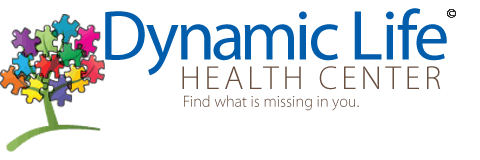Hypertension is the leading cause of death in our country. The higher your blood pressure, the shorter your life expectancy will be. Fifty million Americans have hypertension, the “silent killer” that is increasing your risk of heart attack, congestive heart failure, stroke, kidney failure and blindness. One- third of patients with hypertension don’t know they have it; and over half of the population with hypertension are uncontrolled.
Sixty percent of people diagnosed with hypertension are obese. In some cases, losing 5 to 10 pounds can bring blood pressure down to a normal level. Just an hour and a half of aerobic exercise per week can also lower your risk of heart disease and hypertension.
Approximately 60% of people with hypertension are salt sensitive. What this means is the more salt people with hypertension consume, the higher the blood pressure rises. We should limit our total sodium intake to 2000 mg per day. Potassium is an important nutrient that also helps to control blood pressure. The potassium-hypertension link is seen in people who eat high sodium diets. The recommended ratio is 5 to 1 with potassium intake around 4000 mg per day (60 -120 mEq). Most of your potassium intake should come from food sources such as green leafy vegetables, nuts, papayas, bananas, cantaloupe and oranges. Potassium will reduce your risk of heart attacks and strokes. If you have kidney disease, you need to limit your intake of potassium to 100 mEq per day or less.
Calcium is an important mineral needed for strong bones, blood clotting, muscle function and heartbeat regularity. People who consume 800 mg per day or greater of calcium have a 23% lower risk of developing hypertension. Calcium shows the best response to blood pressure in patients that are African-American, elderly, menopausal females, diabetics, and salt-sensitive hypertensive patients. The recommended amount of calcium is 1000 – 1500 mg per day. The best source for lowering blood pressure was seen in patients who consume calcium through dietary sources. Good food sources include: yogurt, cheese, canned salmon, fresh salmon, almonds, broccoli, and cantaloupe.
Studies have shown that if your vitamin D level drops too low, your bad cholesterol rises along with your blood pressure. Calcium was shown to cause a reduction in systolic blood pressure by 4.3 mmHg. By adding vitamin D at 1200 IU per day, a further reduction in the systolic blood pressure may be realized by an additional 9.3%.
Magnesium regulates blood pressure as well as the amount of sodium, calcium and potassium found within the cells. Magnesium also acts as a cofactor in the production of energy for all of our cells. The amount of magnesium recommended per day is 500 – 1000 mg to help control blood pressure. Magnesium is found in peas, beans, avocados, dry roasted almonds, dark green vegetables, nuts and seafood.
Omega-3 fatty acids have also been found to help lower blood pressure, regulate heart rate, and reduce the risk of both heart disease and blood clots. Doses of 3000 – 4000 mg per day of Omega-3 fatty acids can be beneficial. A study by the Journal of Hypertension found that patients who eat fish daily and lost weight reduced their systolic blood pressure by 13 mmHg and diastolic blood pressure by 9.3%.
Consuming Vitamin C lowers the risk of coronary artery disease and stroke. Vitamin C lowers the blood pressure by relaxing the arteries. It is recommended you take in 500 mg per day to help regulate blood pressure. In food, you can find vitamin C in papayas, red peppers, green peppers, oranges, cauliflower and asparagus.
CoQ10 is an antioxidant that has many health benefits. It has shown to help with hypertension, heart failure, diabetes and high cholesterol. People with hypertension are more likely to have a CoQ10 deficiency. It is recommended that we take in 100 – 200 mg per day depending on our needs. You must be careful to choose the form of CoQ10 that is best absorbed and bioavailable for use. The ubiquinol form is the most highly absorbent form. Not all brands are equal.
Other vitamins and mineral supplements that are found to be beneficial are vitamin E, zinc, vitamin B6, garlic, fiber, L-arginine, taurine, L-carnitine, N-acetylcysteine, and alpha lipoic acid. If you would like more information on natural ways to treat hypertension, you can purchase the book “What Your Doctor May Not Tell You About Hypertension: The Revolutionary Nutrition and Lifestyle Program to Help Fight High Blood Pressure” by Dr. Mark Houston. It is not recommended that you stop your anti-hypertensive medication without discussing it first with your doctor. Some patients may still require medication along with diet and lifestyle changes.

Leave a Reply